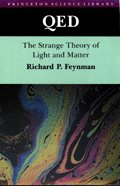
Behavior genetics is the modern astrology. Both strive to assert extrinsic cause, meaning and purpose to human psychology. Both are wrong.
This is a group of stray ideas. Click on the number of comments indicator under a post to make your comment.
 Richard Feynman, Nobel laureate in physics, said that if our eyes were ten times more sensitive than they are, we would detect extremely dim light of one color as a series of intermittent flashes of equal intensity. That's remarkable! It follows from the fact that light is a particle, or at least a series of packages, not a "beam."
Richard Feynman, Nobel laureate in physics, said that if our eyes were ten times more sensitive than they are, we would detect extremely dim light of one color as a series of intermittent flashes of equal intensity. That's remarkable! It follows from the fact that light is a particle, or at least a series of packages, not a "beam." But I wonder if we would see the world with more sensitive eyes any differently. We would integrate the electromagnetic packages much as our minds make motion pictures out of a series of stills presented at 24 frames a second. The kind of animals we are, with the kind of bodies we have, and the kind of mind we have, requires that the physical world be made of solid objects, and that light from them be steady. So we would overlook discrepancies (as we do now with the blind spot, perspective effects, and constancies of color and size, for example).
Still, if we are so committed to seeing the world in a certain way, regardless of the stimulation of our sense receptors, then it makes you wonder if we really know anything about what's "out there."
Reference: Feynman, R. P. (1988). QED: The strange theory of light and matter. Princeton University Press.
